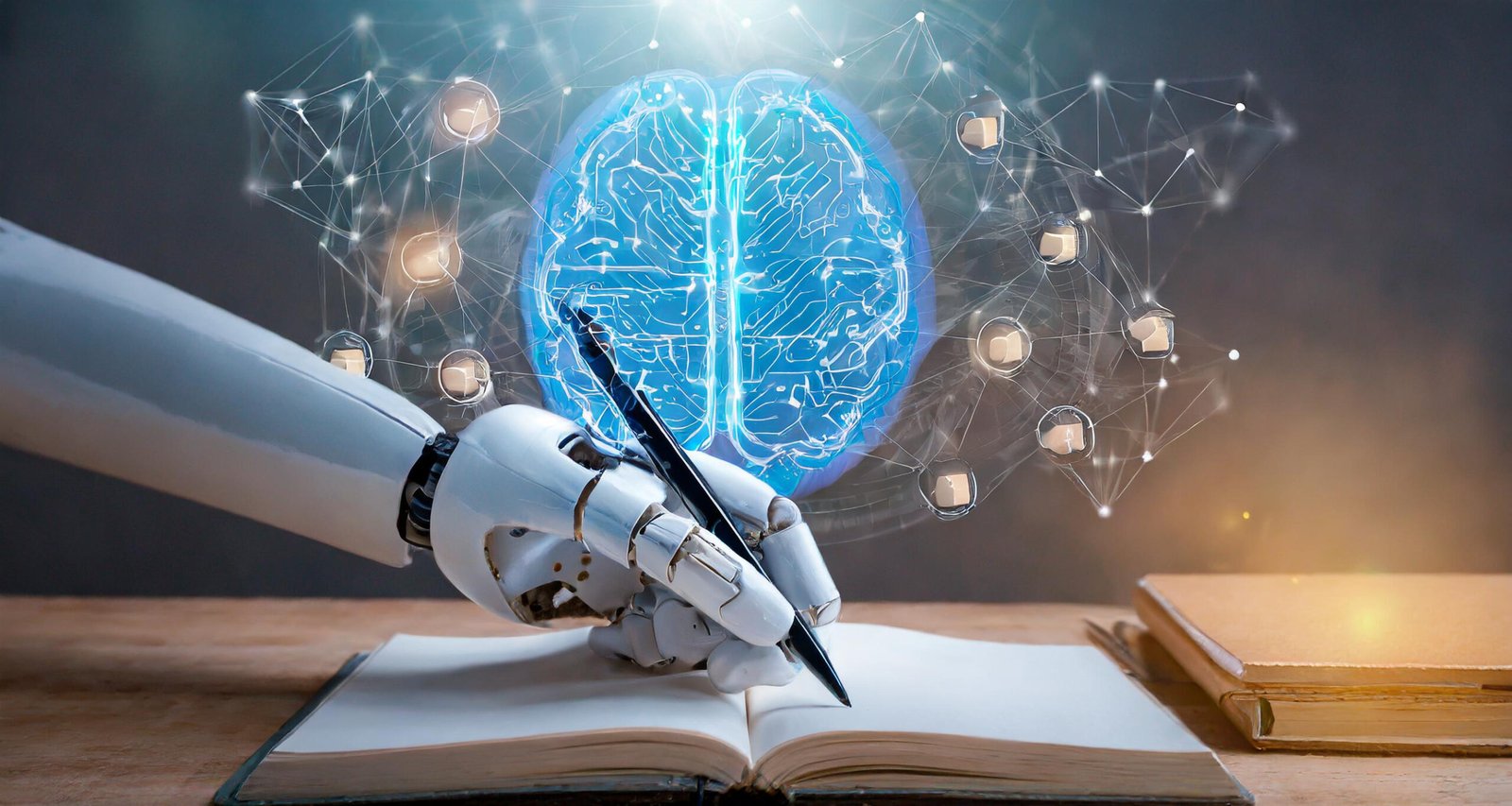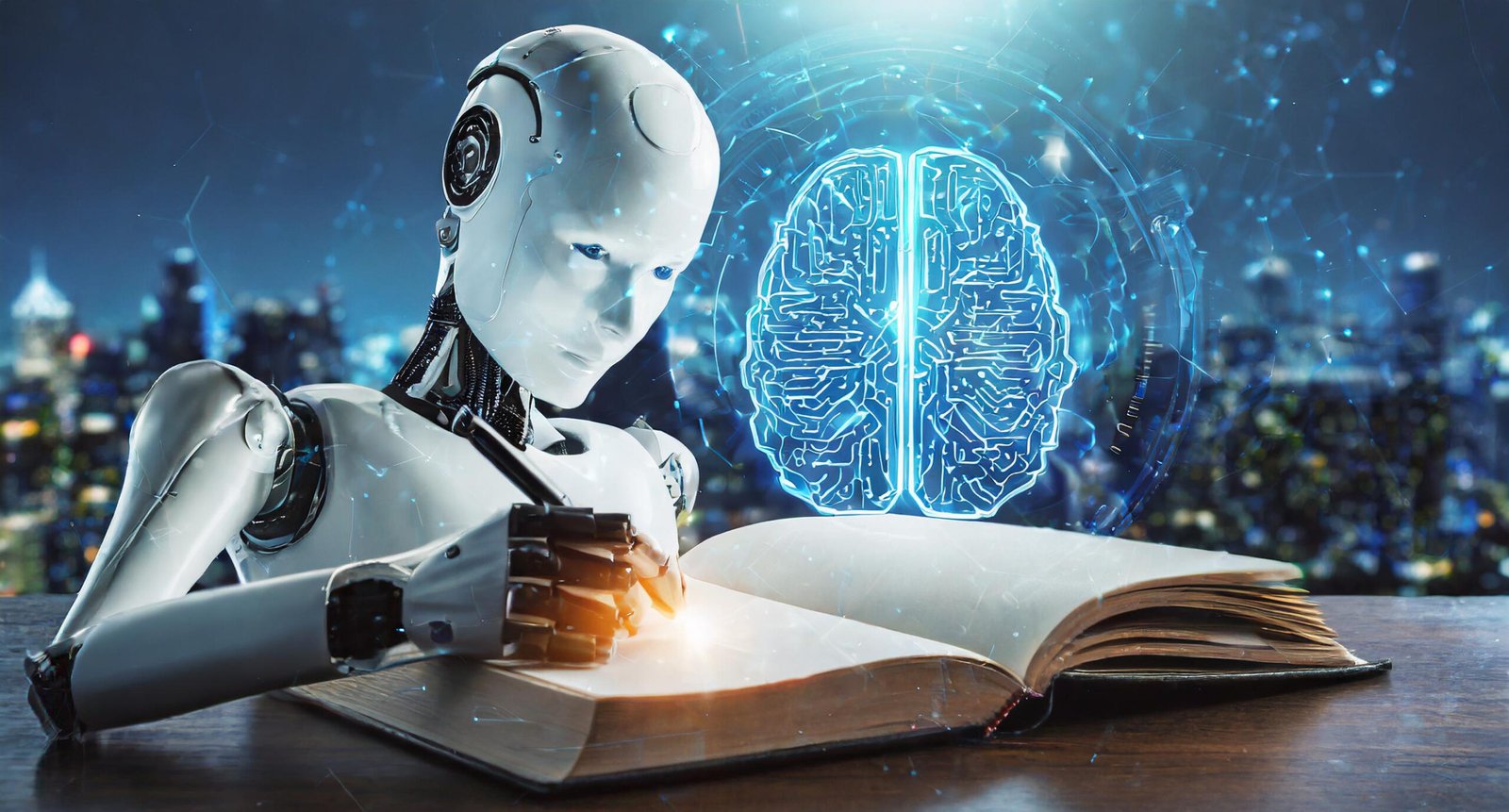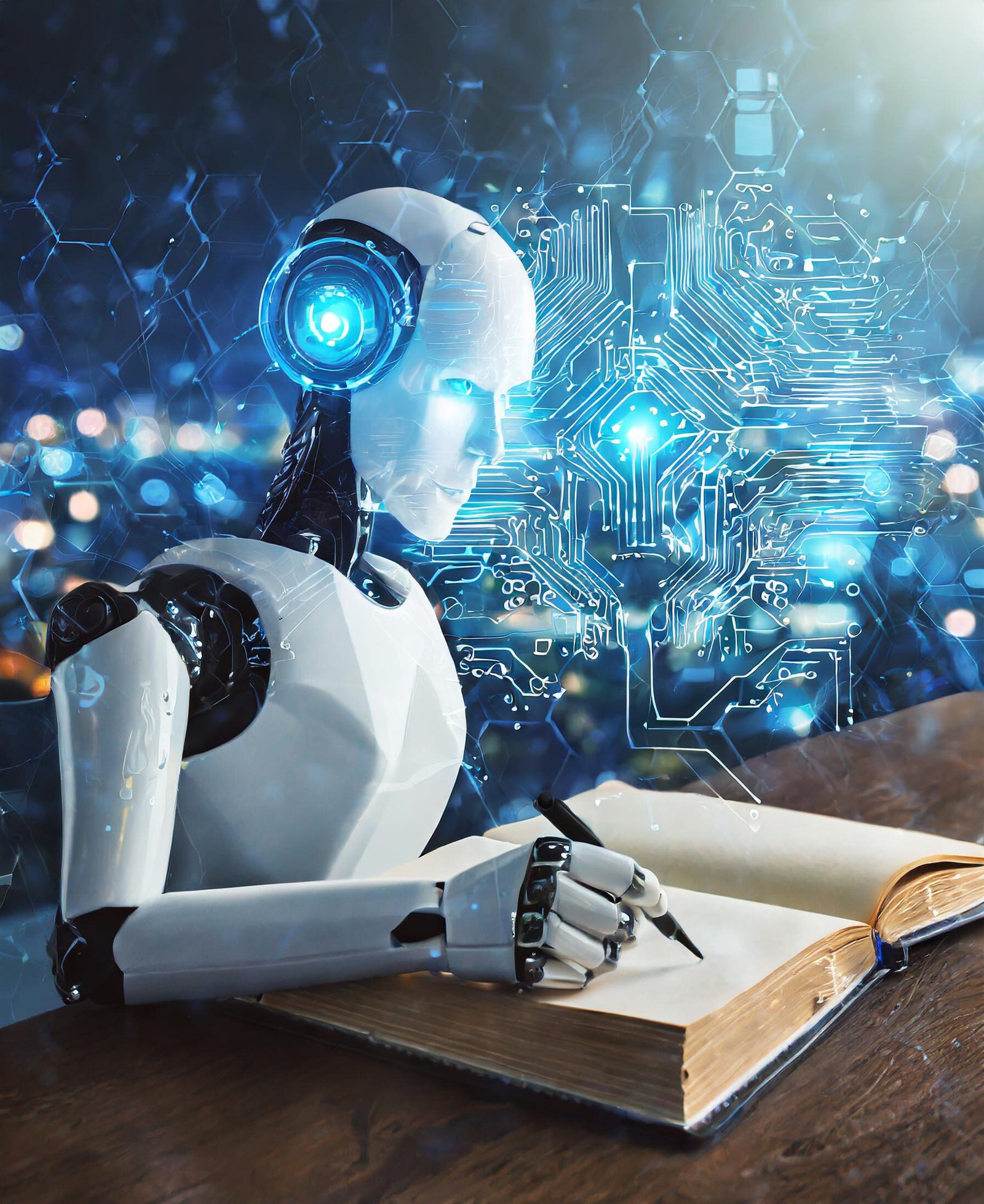Can AI Write a Book? The Future of Authorship in the Age of Artificial Intelligence
Can AI Write a Book? The realm of literature has long been considered a sacred space for human creativity. Yet, with the ever-evolving field of Artificial Intelligence (AI), the question arises: can AI write a book? The answer, like many things in AI, is complex and multifaceted.
Introduction
In the vast landscape of human creativity, literature has always stood as a testament to the ingenuity and imagination of our species. From the epic tales of ancient civilizations to the modern masterpieces of contemporary writers, the act of crafting a book has been seen as a uniquely human endeavor, rooted in our capacity for language, emotion, and storytelling. However, with the rapid advancement of artificial intelligence (AI), the boundaries of what we once believed to be exclusively human domains are continually challenged.

AI’s Role in Book Creation
Co-Writer:
AI writing assistants are becoming increasingly sophisticated. They can analyze vast amounts of text data to understand writing styles, narrative structures, and character development. This allows them to generate creative text formats, plot outlines, and even dialogue snippets. Authors can leverage these features to overcome writer’s block, explore different narrative possibilities, and streamline the writing process.
Assistant:
AI’s potential as an assistant is vast. It can handle tedious tasks like fact-checking, grammar correction, and plagiarism detection. Additionally, AI can analyze reader data to identify trends and preferences, helping authors tailor their content for specific audiences.
Examples of AI in book creation:
- Automated Dialogue Generation: Tools like Bard (from Google AI) can generate realistic and engaging dialogue based on character profiles and plot points. This can be incredibly beneficial for writers developing complex narratives.
- World-Building Assistance: AI can help authors create intricate fictional worlds by generating detailed descriptions, histories, and even maps. This can free up the writer’s time and energy to focus on character development and plot progression.
- Research and Fact-Checking: AI can quickly scan vast amounts of information to ensure factual accuracy and provide additional research materials for the author.

Limitations of AI in Book Writing
While AI undoubtedly offers exciting possibilities for authors, it’s crucial to acknowledge its limitations.
Creativity and originality:
AI excels at processing information and mimicking existing patterns. However, it currently lacks the ability to generate truly original ideas or capture the nuances of human emotion and experience.
Understanding Character Psychology:
Creating believable and relatable characters requires an in-depth understanding of human psychology and motivation. This is something AI still struggles with.
The Human Touch:
Great literature often resonates because it reflects the author’s unique voice and perspective. AI-generated content, while grammatically correct, can often lack the emotional depth and personal connection that readers crave.

The Future of Authorship: A Collaborative Landscape
The rise of AI shouldn’t be seen as a threat to human authors, but rather as a new tool in the writing arsenal. The future of authorship likely lies in a collaborative space where humans leverage AI’s capabilities to enhance their creative process.
Potential Scenarios:
- AI-powered brainstorming sessions: Authors could use AI to generate a pool of ideas, plot twists, or character backstories, ultimately selecting and refining the most promising ones.
- AI-assisted editing and revision: AI can help identify inconsistencies, improve sentence structure, and ensure consistent tone throughout the manuscript.
- Personalized storytelling: AI could be used to create interactive stories that adapt to reader choices, creating a more immersive experience.

Conclusion
Can AI write a book? In its current state, AI cannot write a compelling and commercially successful book entirely on its own. However, AI has the potential to be a powerful tool for authors, streamlining the writing process, enhancing creativity, and providing valuable assistance in a variety of tasks. As AI technology continues to evolve, the future of authorship promises to be a fascinating dance between human creativity and machine intelligence.
FAQs (Frequently Asked Questions)
- Can AI completely replace human authors in the future?
- While AI can assist in various aspects of the writing process, the essence of creativity and human experience is difficult to fully replicate. Thus, a complete replacement seems unlikely.
- Are there risks associated with AI-generated content in literature?
- One potential risk is the homogenization of content, where AI-generated works might lack diversity in perspective and style. Additionally, ethical concerns regarding ownership and authenticity may arise.
- How can authors maintain their unique voice when using AI?
- Authors can maintain their voice by using AI as a tool rather than a replacement. It’s essential to blend AI-generated suggestions with human creativity and personal flair.
- Will AI impact the publishing industry significantly?
- AI has the potential to streamline publishing processes, from editing to marketing. However, its impact may vary depending on industry adoption and readers’ acceptance of AI-generated content.
- What skills should authors develop to collaborate effectively with AI?
- Authors should cultivate adaptability, critical thinking, and a willingness to experiment with new technologies. Collaborating with AI requires understanding its strengths and limitations while leveraging its capabilities effectively.

